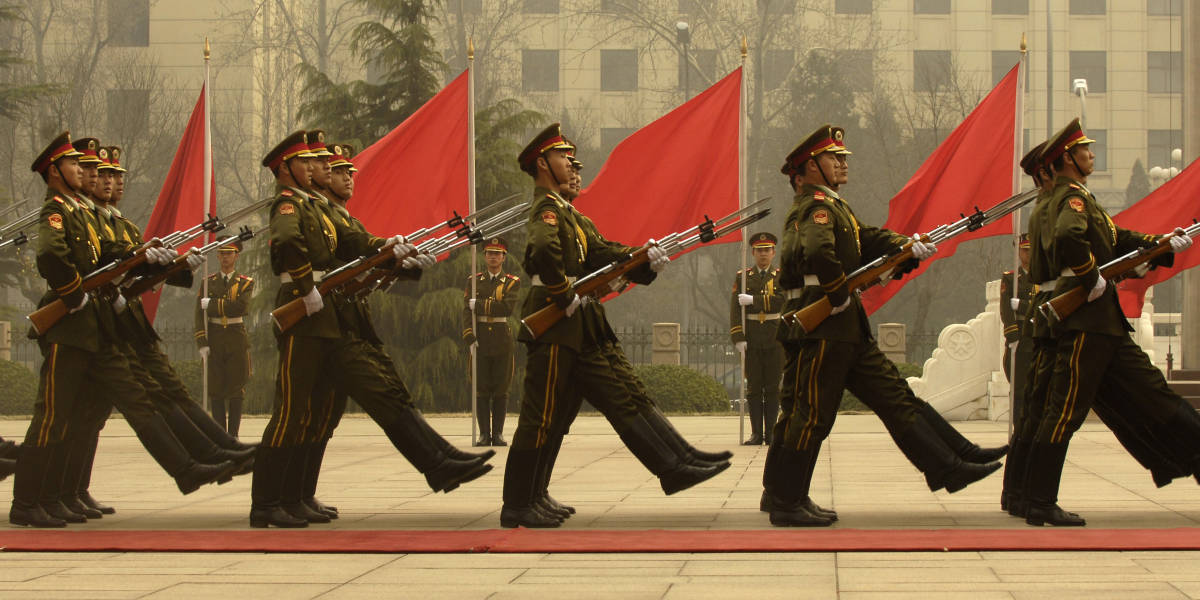At a time of heightened US-China geopolitical tensions, it is right to be wary. Concerns are valid that we are hurtling toward conflict between the two superpowers, articulated on the left as a ‘new cold war’ in some circles. Though there are limits to this comparison – the US and Soviet Union were not economically interdependent the way that the US and China are today, for example – the frame is at least an evocative one.
Whether or not there is a ‘new cold war’, a pernicious phenomenon from the first one has again reared its head – ‘campism’, and the idealisation of authoritarian governments by some western leftists with the view that these represent authentic socialist governments. And so similar tropes such as those that defended the USSR or other authoritarian iterations of ‘actually existing socialism’ are now deployed with regards to China.
There may be no more telling example of this than David Harvey, the doyen of Marxist geography and noted theorist of neoliberalism. As seen in a recent podcast released on ROAR Magazine, while Harvey once saw China as neoliberal, understanding the Deng era free-market reforms as part of global neoliberalism, now Harvey sees the Chinese state as firmly in control of the economy. Harvey claims that the Chinese Communist Party (CCP)’s political legitimacy is tied to its rhetoric regarding equality and so it will enact equitable policies out of self-interest.
Such policies include the recently announced ‘common prosperity zones’, which in Harvey’s view, will somehow usher in socialism to China. Yet, for all the hype, there is little discussion of the dire labour conditions evident across the country. Nor is there much concern for the ongoing repression of labour, LGBTQ, feminist or student activists. This, evidently, is a socialism in which civil society groups can be effectively purged.
Laziness on the left
This belies a more general problem. One notes that in the works of Harvey and, for that matter, Naomi Klein in works from The Shock Doctrine onward, there is the dangerously limited reliance on a small set of English-language sources on China. Reference to the works of Chinese leftist nationalist Wang Hui, who recently has turned toward apologism for Chinese president Xi Jinping’s personality cult, seems to dominate discussion of China in Harvey and Klein, as though Wang were the be-all and end-all of talk of China.
There are numerous, alternative scholars who have maintained a critical respective of the Chinese government that are routinely ignored by prominent leftists. One such example is Lee Ching-kwan, whose writing spans coverage of China’s actions in Africa to contemporary protests in Hong Kong. The writings of Hong Kong leftist Au Loong Yu, in the pages of the Made in China journal, the Lausan Collective, and Chuang provide other needed correctives on issues ranging from Chinese labour to contemporary Chinese political economy.
It is this intellectual laziness, then, that has allowed groups such as the Qiao Collective to gain footing among the left in recent times. The Qiao Collective primarily consists of Chinese diaspora, who often evidence little knowledge of the Chinese language, and whose arguments on China are almost universally drawn from Chinese state-run media outlets. While the diaspora is far from a homogenous group, there is often a tendency to platform China as an idealised homeland to project their ideals onto.
Through token gestures toward cultural authenticity compounded by much of the western left’s lacking knowledge of anything to do with China, Qiao has gained ground among US anti-war circles, aligning with Vijay Prashad, Nick Estes, and other leftists who have come to idealise China as a socialist utopia. This occurs because of the desire to hold up an alternative to the US, even if this fails to grasp that there can be more than one empire in the world at a given time.
Examining empires
It is not hard to find examples of extreme repression in China. Muslim-majority Uyghurs have been put in vast detention camps in Xinjiang for their religion, sometimes justified using rhetoric drawn from the ‘war on terror’. Han Chinese are the majority ethnic group in China and routinely displace so-called ‘ethnic minorities’. The CCP often justifies its actions by claiming to be stomping out separatist inclinations. A similar specter of separatism is used against the Tibetans and Taiwan, while de facto independent, China claims its territory as part of its own. As part of the CCPs ongoing (and escalating) intimidation of Taiwan, hundreds of warplanes are being regularly deployed across the Taiwan Strait.
In a stunning failure of internationalism, the Democratic Socialists of America (DSA) recently voted down a proposal to issue a condemnation of the dissolution of the Hong Kong Confederation of Trade Unions (HKCTU) due to pressure from Chinese authorities. Many consider the HKCTU to have been the most effective channel for independent worker organising in Hong Kong. This failure likely occurred because the Qiao Collective and other groups propagated the falsehood that the HKCTU was a US-backed force aimed at undermining China.
It will prove hard, then, to combat this phenomenon, though efforts at providing for a broader and more nuanced political education about non-western contexts are welcome and should be pursued. It can be easier to try to escape the shackles of nationalism by idealising another nation than it is to negotiate the complex geopolitical realities of the new cold war. Unfortunately, parts of the left seem scarcely prepared to think its way through this quandary. As such, a new internationalism that does not simply consist of uncritical campism seems a long way off.











